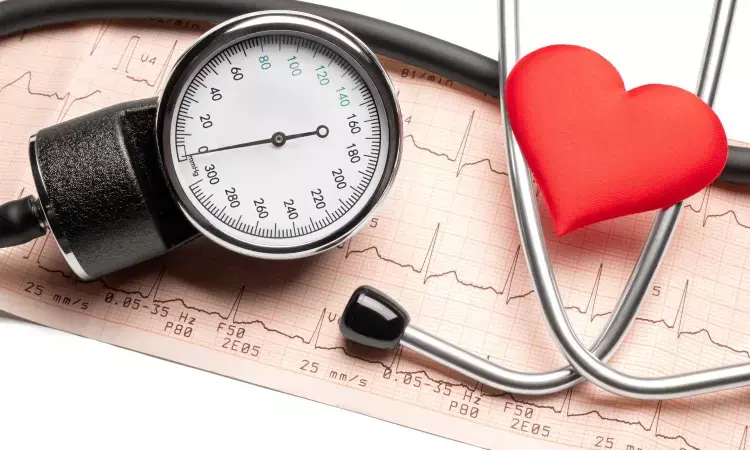- Home
- Medical news & Guidelines
- Anesthesiology
- Cardiology and CTVS
- Critical Care
- Dentistry
- Dermatology
- Diabetes and Endocrinology
- ENT
- Gastroenterology
- Medicine
- Nephrology
- Neurology
- Obstretics-Gynaecology
- Oncology
- Ophthalmology
- Orthopaedics
- Pediatrics-Neonatology
- Psychiatry
- Pulmonology
- Radiology
- Surgery
- Urology
- Laboratory Medicine
- Diet
- Nursing
- Paramedical
- Physiotherapy
- Health news
- Fact Check
- Bone Health Fact Check
- Brain Health Fact Check
- Cancer Related Fact Check
- Child Care Fact Check
- Dental and oral health fact check
- Diabetes and metabolic health fact check
- Diet and Nutrition Fact Check
- Eye and ENT Care Fact Check
- Fitness fact check
- Gut health fact check
- Heart health fact check
- Kidney health fact check
- Medical education fact check
- Men's health fact check
- Respiratory fact check
- Skin and hair care fact check
- Vaccine and Immunization fact check
- Women's health fact check
- AYUSH
- State News
- Andaman and Nicobar Islands
- Andhra Pradesh
- Arunachal Pradesh
- Assam
- Bihar
- Chandigarh
- Chattisgarh
- Dadra and Nagar Haveli
- Daman and Diu
- Delhi
- Goa
- Gujarat
- Haryana
- Himachal Pradesh
- Jammu & Kashmir
- Jharkhand
- Karnataka
- Kerala
- Ladakh
- Lakshadweep
- Madhya Pradesh
- Maharashtra
- Manipur
- Meghalaya
- Mizoram
- Nagaland
- Odisha
- Puducherry
- Punjab
- Rajasthan
- Sikkim
- Tamil Nadu
- Telangana
- Tripura
- Uttar Pradesh
- Uttrakhand
- West Bengal
- Medical Education
- Industry
Low-dose quadruple therapy promising for hypertension management

The mixed-methods process evaluation of the Quadruple Ultra-Low-Dose Treatment for Hypertension USA (QUARTET USA) clinical trial examines the perceptions of patients and healthcare professionals on the use of low-dose quadruple therapy (LDQT) as a novel approach for managing hypertension.
A study published in the Journal of the American Heart Association, JAHA, has concluded that LDQT is well-accepted by patients and healthcare professionals for managing hypertension due to its improved blood pressure control and safety. To achieve LDQT's widespread adoption, stepped-care combinations, treatment protocols, and cost barriers, including insurance coverage and transportation, must be addressed.
A survey was conducted on all 62 patients enrolled in the QUARTET USA trial, and a subsample of 13 patients and 11 healthcare professionals were interviewed. At enrollment, 68% of participants (mean age 51.7 years) reported that their health relied on blood pressure medications, and 48% worried about these medicines.
At the end of the trial, 80% of patients were satisfied with LDQT, 96% felt the benefits of taking LDQT outweighed the drawbacks, and 96% found LDQT to be convenient. Both patients and healthcare professionals found LDQT acceptable because it reduced patients' pill burden and improved medication adherence. Healthcare professionals noted that a limitation of LDQT was the inability to titrate doses. To promote LDQT implementation, steps such as introducing stepped-care combinations and treatment protocols, including it in clinical practice guidelines, and eliminating patient cost barriers can be taken.
Our study is the first to investigate the effectiveness of low-dose quadruple therapy on hypertension control rates in an urban federally qualified health centre network. Treatment satisfaction was high. Scalable interventions are needed to address inequitable blood pressure control rates across diverse contexts. If clinical trial evidence supports the efficacy of low-dose quadruple therapy and patient cost barriers are eliminated, health care professionals would prescribe it, they concluded further.
The major strength of this study is the inclusion of a diverse patient population, they said.
Reference:
Olutobi A. Sanuade et al. Process Evaluation of a Double‐Blind Randomized Controlled Trial to Assess the Efficacy and Safety of a Quadruple Ultra‐Low‐Dose Treatment for Hypertension Within a Federally Qualified Health Center Network (QUARTET USA). Journal of the American Heart Association. 2024;13:e032236
BDS, MDS in Periodontics and Implantology
Dr. Aditi Yadav is a BDS, MDS in Periodontics and Implantology. She has a clinical experience of 5 years as a laser dental surgeon. She also has a Diploma in clinical research and pharmacovigilance and is a Certified data scientist. She is currently working as a content developer in e-health services. Dr. Yadav has a keen interest in Medical Journalism and is actively involved in Medical Research writing.
Dr Kamal Kant Kohli-MBBS, DTCD- a chest specialist with more than 30 years of practice and a flair for writing clinical articles, Dr Kamal Kant Kohli joined Medical Dialogues as a Chief Editor of Medical News. Besides writing articles, as an editor, he proofreads and verifies all the medical content published on Medical Dialogues including those coming from journals, studies,medical conferences,guidelines etc. Email: drkohli@medicaldialogues.in. Contact no. 011-43720751


